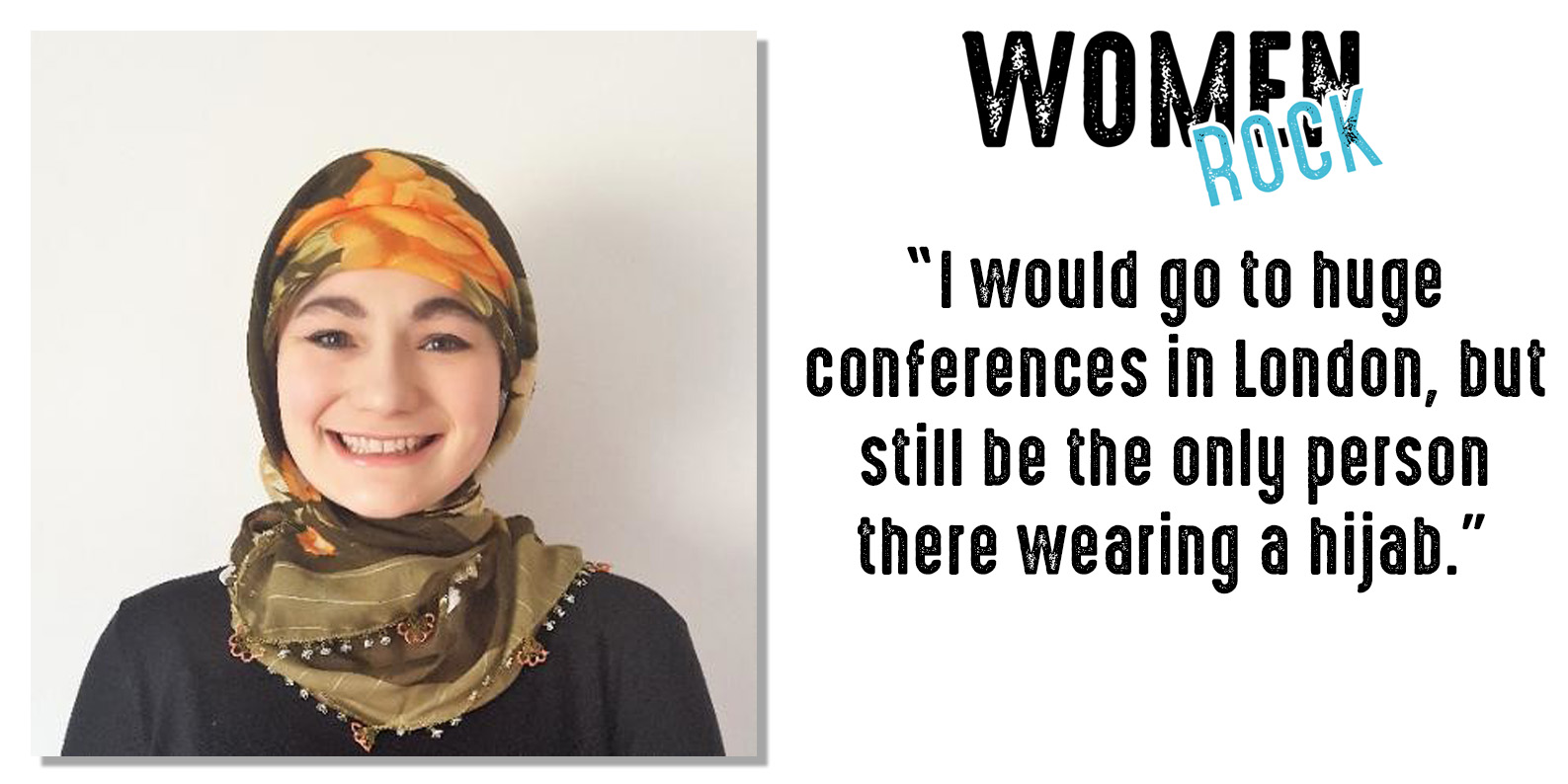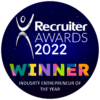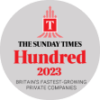
Grace Witter | Patchwork Health
When contemplating a career that means you can transition from stay-at-home mum to working from home, not all of us would immediately think of looking into the tech industry – especially those of us who don’t have previous experience. But when Grace Witter‘s youngest was still a baby she taught herself to code and followed her heart – and we’re so glad she did!
Grace is now Technical Product Manager at award-winning health-tech company Patchwork Health AND founder of Tech Sisters – a community that exists to celebrate and support Muslim women in tech – which we are totally here for!
HELLO GRACE! CAN YOU TELL US A LITTLE BIT ABOUT YOU, AND WHAT YOU DO AT THE MOMENT?
Hi everyone! I’m thrilled to be part of SR2’s Women Rock series. I’m currently working as the Technical Product Manager at Patchwork Health, where I lead the technical team and oversee the development of our workforce management solution for the NHS.
Throughout my career, I’ve always been passionate about Tech for Good and using technology to positively impact people’s lives. That’s why I feel so lucky to be working in the healthcare industry and making a difference in the lives of patients and healthcare workers.
In addition to my work at Patchwork Health, I’m also the founder of Tech Sisters, a community that I started in 2019 with a mission to help Muslim women feel seen and validated in their tech journeys. Through Tech Sisters, we aim to create a supportive community where Muslim women can network, share experiences, and find inspiration and guidance to build fulfilling and long-term careers in tech.
I believe that diversity and inclusivity are crucial for the tech industry to thrive, and I’m proud to be part of the movement that’s working towards making tech more accessible and welcoming to everyone, regardless of their background or identity.
WHAT MADE YOU DECIDE TO GET INTO TECH?
When my youngest child was still a baby, I was researching ways that I could transition from being a stay-at-home mom to working from home. I was looking for a career that would be flexible, challenging, and rewarding, and I stumbled upon tech as one of the options. I was intrigued by the idea of being able to create something out of nothing and seeing the impact the things that I built had on the people who used them.
I began teaching myself how to code HTML, CSS, and Javascript and started doing some freelance work building WordPress sites for small businesses. I loved the feeling of bringing someone’s vision to life on the web and seeing their business grow as a result of my work. As I gained more experience, I realized that I wanted to go deeper into tech and explore new areas of development.
That’s when I decided to pursue a career in frontend development, and I was fortunate to get a position at HappyPorch, a B Corp just like SR2. Working at HappyPorch was a fantastic experience, as I was able to learn from and collaborate with some incredibly talented people, while also contributing to projects that had a positive impact on society.
MORE SPECIFICALLY, WHY DID YOU MOVE INTO PRODUCT MANAGEMENT? WHAT WAS THAT TRANSITION LIKE?
While I loved my work as a frontend developer, I found myself getting a little bit burned out with coding and I realised that I was increasingly asking more “what” and “why” questions rather than “how”. I was curious about the bigger picture of how the software products we were building were fitting into the overall strategy of our clients, and I wanted to be involved in shaping that strategy.
During my time at HappyPorch, I had the opportunity to work with some amazing Product Managers, including Lauren Dudley, who had a fantastic ability to organize work and keep everyone aligned with the product vision. Seeing how she worked and how much impact she was able to make inspired me to explore the world of product management further.
I started taking advantage of more product-related opportunities at HappyPorch, took courses, and gained certifications. Gradually, I transitioned into a more product-focused role and when the time was right, I was fortunate to be able to transition to the Product Manager role at Patchwork.
The transition was not without its challenges, as I had to learn new skills and adapt to a different way of thinking. However, I found that my experience as a front-end developer gave me a solid foundation in understanding the technical aspects of our products, which has been incredibly useful in my role as a product manager.
WHAT DO YOU FEEL IS THE HARDEST, AND MOST REWARDING THING ABOUT BEING A PRODUCT MANAGER?
The most rewarding part of the job for me is the discovery work, where I get to listen to our users’ needs and brainstorm ways to solve their problems. It’s a fantastic feeling to know that I’ve helped someone solve a problem or meet a need that they had.
Hearing positive feedback from the users is incredibly fulfilling like them saying that I really listened to them. It’s a testament to the hard work that we’ve put in to make their experience better, and it’s what makes being a product manager so worthwhile.
However, there are also some challenging aspects of being a product manager. For instance, it can be hard adjusting to the more zoomed-out way of thinking, rather than just focusing on each ticket like I did when I was a developer. As a product manager, I am accountable for the product during its entire journey, and that can be overwhelming at times.
Keeping everyone inside and outside the business aligned is sometimes like herding cats. It requires strong communication skills, a clear understanding of the product’s goals, and the ability to manage multiple stakeholders.
I KNOW THAT YOU ARE ALSO THE FOUNDER OF TECH SISTERS! CAN YOU TELL US A LITTLE BIT MORE ABOUT THIS?
I founded Tech Sisters in 2019 after working as a developer for a few years but never meeting any other Muslim women in a similar space. I would go to huge conferences in London, but still be the only person there wearing a hijab. I reached out online and verified that a lot of other Muslim women in tech shared my exact experience.
That’s when I decided to start the Tech Sisters newsletter. Initially, I just cold-messaged people on LinkedIn who I thought would be a good fit for an interview. The response was overwhelming, and I quickly realized that there was a real need for a community of Muslim women in tech.
Since then, Tech Sisters has grown to become a Slack community and a podcast. We provide our members with mentors from the community and facilitate career and skills workshops. Our goal is to help Muslim women in tech find support, advice, and guidance from other women who have been through similar experiences.
Our members frequently tell us that they’ve gone for many years in their careers being the only Muslim woman at work and that they’ve looked for a space like Tech Sisters for a very long time. We let the women in this community know that we see them and that their experiences are valid. We give them examples and stories of women like them who are successful in their careers without sacrificing their identities. And we connect them with a supportive community who are on similar journies.
WHAT ADVICE WOULD YOU GIVE TO SOMEONE WHO IS JUST STARTING OUT IN THE PRODUCT SPACE?
If you’re just starting out in the Product space, my first piece of advice would be to learn from your users. Take the time to understand your users’ needs and preferences. Conduct user research, engage with your customers, and gather feedback. By putting your users’ needs first, you can build a product that truly solves their problems.
Remember to build relationships across the business, not just with your immediate team. Your colleagues are an amazing source of information, especially those in customer-facing roles like sales and customer care. They know what matters most to your customers and their pain points, so take the time to engage with them and learn from their insights.
Also, make sure you’re metrics-driven and can effectively communicate your work’s impact. Identify metrics that matter to your various stakeholders, so you can easily communicate the success of your product to them. Being data-driven is crucial in making informed decisions that drive the product’s success.
Thanks, Grace you rock!
Interview by Gina Sumner






